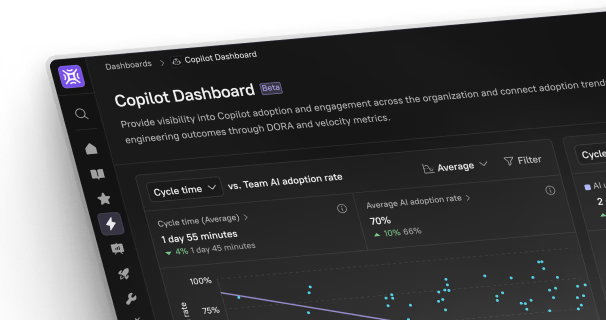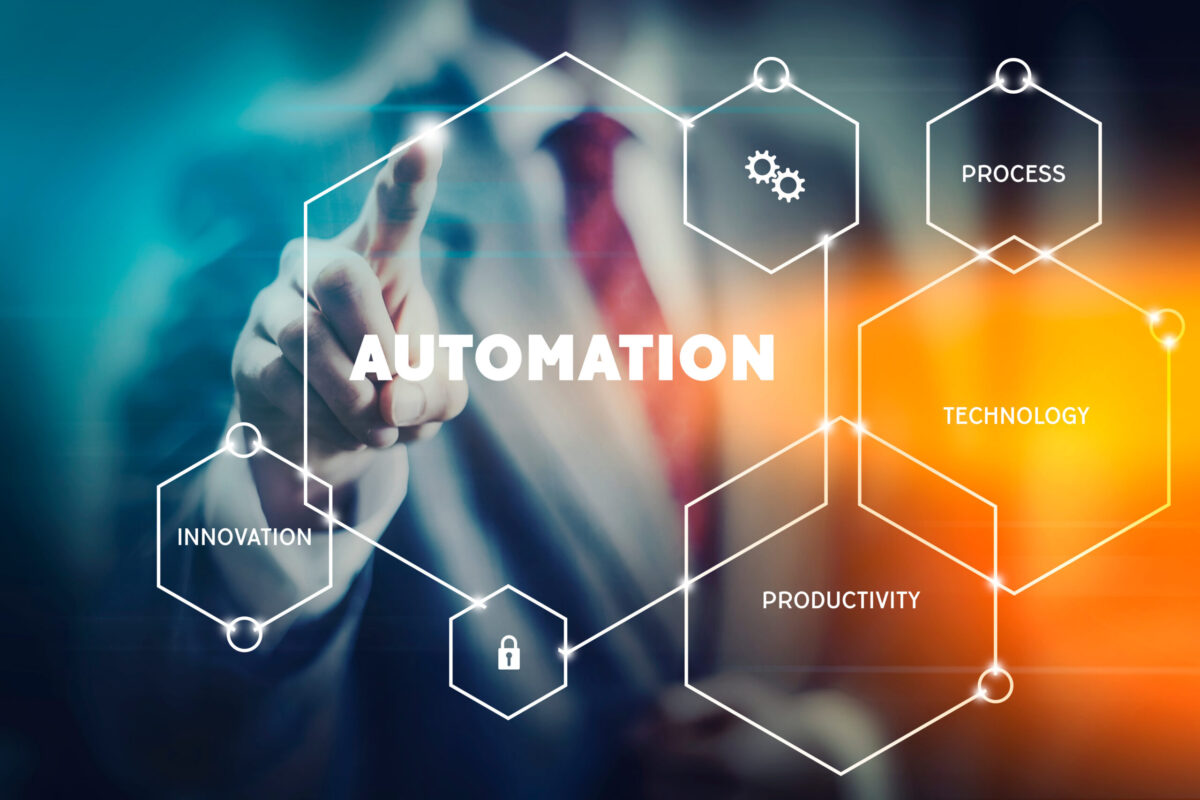Nearly 90 percent of successful organizations rely on real time, centralized data to inform their decisions. In a business landscape where every second counts, scattered information and outdated tools can create serious roadblocks. Bringing all your data, analytics, financials, and workflows into a unified ERP system is the foundation for faster insights, streamlined operations, and smarter moves. Discover how leading businesses transform complexity into clarity using advanced ERP features that drive lasting results.
Table of Contents
- 1. Centralized Data Management For Informed Decisions
- 2. Real-Time Analytics And Reporting Tools
- 3. Automated Workflow And Process Integration
- 4. Robust Financial Management Capabilities
- 5. Advanced Inventory And Supply Chain Control
- 6. Seamless CRM And Customer Service Modules
- 7. High Security, Compliance, And User Access Controls
Quick Summary
| Takeaway | Explanation |
|---|---|
| 1. Centralized data management boosts decision-making | Integrating data systems eliminates silos and provides real-time insights for informed choices. |
| 2. Real-time analytics enhance business performance | Instant data visualization allows quick responses to market changes and emerging challenges. |
| 3. Automated workflows increase operational efficiency | Automating processes reduces manual work and errors, accelerating different business operations. |
| 4. Strong financial management drives growth | Comprehensive financial tools enable data-driven decision-making with speed and accuracy. |
| 5. Robust security measures protect sensitive data | Advanced security protocols and dynamic user permissions ensure data integrity and compliance. |
1. Centralized Data Management for Informed Decisions
In the complex world of enterprise operations, data is your most strategic asset. Centralized data management transforms how businesses collect, process, and leverage information across multiple departments and systems.
Think of centralized data management like a master control room where all your business information converges. According to Aras, this approach integrates disparate systems like PDM, PLM, ERP, and CRM, enabling seamless data flow and eliminating operational silos.
When your ERP system creates a single source of truth, you unlock powerful advantages. Your teams gain real time insights, reducing duplicate data entry and minimizing communication gaps. Imagine sales, finance, and operations all working from the same comprehensive data platform.
Key Benefits of Centralized Data Management:
- Eliminates information fragmentation
- Provides consistent data across organization
- Supports faster decision making
- Reduces manual data reconciliation efforts
By implementing robust centralized data management, you transform raw information into strategic intelligence. Your business becomes more agile, responsive, and equipped to make informed decisions quickly.
For businesses ready to optimize their data strategy, exploring comprehensive data management solutions can provide deeper insights into implementation strategies.
2. Real-Time Analytics and Reporting Tools
In today’s fast-moving business environment, waiting for insights is no longer an option. Real-time analytics and reporting tools have become the heartbeat of strategic decision making, transforming raw data into actionable intelligence at lightning speed.
Think of these tools as your business’s central nervous system. They continuously capture, process, and visualize data across your entire organization, enabling you to make informed decisions instantly. As research from ArXiv highlights, advanced platforms now support large-scale continuous data analytics, facilitating immediate feedback and enhanced monitoring.
When implemented effectively, real-time analytics provide a panoramic view of your business performance. Sales trends, inventory levels, financial metrics, and operational efficiency all become transparent and immediately accessible. Your leadership team can track key performance indicators and respond to emerging opportunities or challenges in minutes rather than days or weeks.
Key Capabilities of Real-Time Analytics Tools:
- Instant data visualization
- Cross-departmental performance tracking
- Predictive insights generation
- Automated reporting and alerts
To maximize these capabilities, consider exploring comprehensive data analysis tools that can transform your organization’s analytical approach. The right reporting tools do more than present numbers they tell a story about your business’s current state and potential future trajectories.
3. Automated Workflow and Process Integration
Business efficiency is no longer about working harder but working smarter. Automated workflow and process integration represents the cutting edge of operational optimization, transforming how organizations manage complex business processes.
According to research from IRJMETS, cloud-based ERP systems are revolutionizing administration by integrating various processes into a unified platform. This integration automates workflows, enhances data security, and dramatically reduces operational costs.
Imagine a seamless ecosystem where business processes communicate and execute automatically. When a sales order arrives, your ERP system triggers a cascade of actions without manual intervention. Inventory levels update in real time, procurement processes initiate, and invoices generate instantly. This is not future technology it is happening now.
Key Benefits of Workflow Automation:
- Eliminates manual data entry
- Reduces human error
- Accelerates process completion times
- Ensures consistent operational standards
For businesses seeking to transform their operational efficiency, exploring automated workflow solutions can provide a strategic roadmap to digital transformation. The goal is not just automation but intelligent, responsive business processes that adapt and optimize continuously.
4. Robust Financial Management Capabilities
Financial management is the heartbeat of any successful organization. Robust financial management capabilities in ERP systems transform complex financial data into strategic insights that drive business growth.
According to Oracle Cloud, comprehensive financial management goes beyond basic accounting. It encompasses multiple enterprise functions including accounting, project management, procurement, and strategic financial planning. Modern ERP systems provide a unified platform that brings all these critical financial processes together.
Imagine having a financial command center that tracks every monetary transaction, predicts cash flow, and generates instant reports. These advanced systems do more than record numbers they provide actionable intelligence. By integrating various financial processes, businesses can make data driven decisions with unprecedented speed and accuracy.
Critical Financial Management Features:
- Automated financial reporting
- Real time budget tracking
- Predictive financial analytics
- Compliance and risk management
For businesses looking to elevate their financial strategy, understanding advanced financial management solutions can be a game changer. The right ERP system turns financial data from a complex challenge into a powerful strategic asset.
5. Advanced Inventory and Supply Chain Control
Modern businesses compete on speed and precision. Advanced inventory and supply chain control transforms how organizations manage their most critical operational resources transforming complexity into competitive advantage.
According to Oracle Cloud, supply chain management is no longer about tracking products it is about creating intelligent ecosystems that anticipate and respond to market dynamics. Integrated ERP systems now offer comprehensive tools that synchronize inventory levels, predict demand, and optimize procurement strategies in real time.
Picture a system that knows exactly when to reorder, which supplier offers the best price, and how to minimize warehouse costs. These advanced controls provide granular visibility into every aspect of your supply chain. From tracking raw materials to managing final product distribution, your ERP becomes a strategic command center that minimizes waste and maximizes efficiency.
Key Supply Chain Management Capabilities:
- Automated inventory tracking
- Predictive demand forecasting
- Supplier performance analytics
- Dynamic procurement optimization
For businesses ready to revolutionize their operational strategy, exploring comprehensive business process automation can unlock unprecedented supply chain intelligence. The future of business is not just managing inventory it is anticipating and shaping market opportunities.
6. Seamless CRM and Customer Service Modules
Customer relationships are the lifeblood of any successful business. Seamless CRM and customer service modules transform how organizations understand, engage, and support their most valuable asset their customers.
According to Oracle Cloud, modern ERP systems now integrate customer experience management into a comprehensive platform. This means no more juggling multiple systems or losing critical customer interactions in communication gaps.
Imagine a unified system that tracks every customer touchpoint from initial inquiry to post sales support. Your sales team sees complete customer history, support representatives understand previous interactions, and marketing can develop targeted strategies based on real insights. These integrated modules create a 360 degree view of your customer relationships, enabling personalized and responsive service.
Key CRM and Customer Service Features:
- Unified customer interaction tracking
- Automated support ticket management
- Intelligent customer segmentation
- Performance analytics for customer engagement
For businesses aiming to elevate their customer relationship strategy, exploring comprehensive CRM features can unlock unprecedented customer loyalty and growth potential. The future of business is not just serving customers it is anticipating their needs before they arise.
7. High Security, Compliance, and User Access Controls
In an era of increasing cyber threats and stringent regulatory requirements, robust security and access control are not optional they are essential for business survival.
According to research from IRJMETS, cloud-based centralized ERP systems offer transformative advantages including improved IT flexibility, enhanced cost efficiency, and superior data protection. These systems provide a comprehensive shield against potential security breaches.
Modern ERP security goes beyond traditional password protection. Imagine a sophisticated system that manages user permissions dynamically, tracks every data access point, and automatically flags suspicious activities. Role based access controls ensure that employees see only the information relevant to their specific job functions.
Key Security and Compliance Features:
- Granular user permission management
- Automatic audit trail generation
- Real time security threat monitoring
- Comprehensive data encryption protocols
For businesses seeking to fortify their digital infrastructure, exploring comprehensive IT governance tools can provide a strategic roadmap to robust cybersecurity. The goal is not just protection but creating a resilient, intelligent security ecosystem.
Below is a comprehensive table summarizing the key concepts and benefits of ERP system features discussed throughout the article.
| Feature | Description | Key Benefits |
|---|---|---|
| Centralized Data Management | Integration of disparate systems (PDM, PLM, ERP, CRM) for seamless data flow. | Eliminates information fragmentation, supports faster decision making. |
| Real-Time Analytics | Continuous data capture and visualization for immediate decision making. | Offers instant data visualization, predictive insights. |
| Automated Workflow | Automates complex business processes enhancing efficiency. | Reduces manual data entry, accelerates completion times. |
| Financial Management | Unifies financial processes from accounting to strategic planning. | Provides predictive analytics, real-time budget tracking. |
| Supply Chain Control | Synchronizes inventory and procurement strategies. | Enhances visibility, minimizes waste, optimizes efficiency. |
| CRM and Customer Service | Tracks and manages comprehensive customer interactions. | Enables personalized service, improves engagement. |
| Security and Compliance | Dynamic user permissions and threat monitoring. | Ensures data protection, comprehensive encryption protocols. |
Unlock the Full Potential of Your ERP System with Singleclic
The journey to mastering the 7 essential ERP system features starts with overcoming real challenges like fragmented data, slow decision-making, manual workflows, and security concerns. This article highlights how features such as centralized data management, automated workflows, real-time analytics, and robust financial controls are no longer optional but vital for thriving organizations. If you are ready to move beyond just adopting technology to truly optimizing your operations, Singleclic stands ready to guide your digital transformation journey.
With over 10 years of trusted experience in ERP and CRM implementation across KSA, UAE, and Egypt, we integrate cutting-edge solutions like Odoo, Microsoft Dynamics 365, and IBM Workflow Automation tailored specifically to your industry needs. Our expertise ensures your business leverages every ERP capability from advanced inventory control to seamless customer service modules and top-tier security compliance.

Maximize your business performance now by exploring how our ERP & CRM Implementation services empower smarter workflows and faster decisions. Discover the power of Business Process Automation to eliminate inefficiencies and embrace intelligent operations. Visit Singleclic today to take the first step towards transforming your enterprise with integrated, scalable ERP solutions designed for immediate impact and long-term success.
Frequently Asked Questions
What are the key benefits of centralized data management in an ERP system?
Centralized data management eliminates information fragmentation and provides consistent data across the organization. To maximize these benefits, implement a robust data management solution to ensure all teams access accurate, real-time information that supports faster decision-making.
How do real-time analytics improve business decision-making?
Real-time analytics provide instant insights into business performance, allowing leaders to track key performance indicators and respond to changes quickly. Consider adopting analytics tools that update metrics continuously, enabling your team to react to opportunities or challenges within minutes.
What features should I look for in automated workflow solutions?
Key features of automated workflow solutions include eliminating manual data entry, accelerating process completion times, and ensuring consistent operational standards. Identify processes that can be automated to reduce human error and streamline operations, which can lead to increased efficiency within 30-60 days.
How can ERP systems enhance financial management capabilities?
ERP systems enhance financial management by integrating accounting, project management, and procurement into a unified platform. Focus on implementing features like automated financial reporting and real-time budget tracking to transform financial data into actionable intelligence.
What is advanced inventory and supply chain control in ERP?
Advanced inventory and supply chain control uses real-time data to manage inventory levels, predict demand, and optimize procurement strategies. To gain a competitive edge, ensure your ERP system includes automated inventory tracking and predictive analytics for efficient supply chain management.
How does a seamless CRM module benefit customer relationships?
A seamless CRM module enables your organization to track every customer interaction in one place, providing a 360-degree view of customer relationships. Implement unified tracking and automated support management features to enhance customer engagement and loyalty, yielding noticeable improvements in satisfaction metrics over time.









